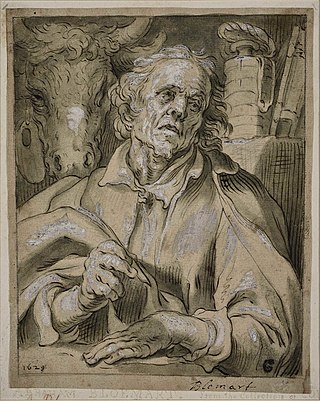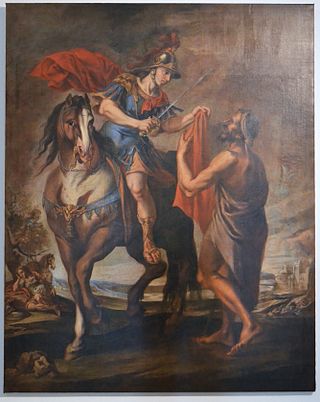| Gender | Male |
|---|---|
| Origin | |
| Word/name | Hebrew |
| Meaning | beloved |
| Other names | |
| Related names | David, Dave, Davey |
Davy is a male given name in its own right, as well as a short form (hypocorism) of the name David. Davy may refer to:

Luke is a male given name, and less commonly, a surname.
Doyle is a surname of Irish origin. The name is a back-formation from O'Doyle, which is an Anglicisation of the Irish Ó Dubhghaill, meaning "descendant of Dubhghall". There is another possible etymology: the Anglo-Norman surname D'Oyley with agglutination of the French article de. It means 'from Ouilly', name of a knight who originated from one of the places named Ouilly in Normandy, such as Ouilly-le-Tesson, Ouilly-le-Vicomte, etc. The relationship with the family D'Oyly is unknown.
Melvin is a masculine given name and surname, likely a variant of Melville and a descendant of the French surname de Maleuin and the later Melwin. It may alternatively be spelled as Melvyn or, in Welsh, Melfyn and the name Melivinia or Melva may be used a feminine form. Of Norman French origin, originally Malleville, which translates to "bad town," it likely made its way into usage in Scotland as a result of the Norman conquest of England. It came into use as a given name as early as the 19th century, in English-speaking populations.
Ronald is a masculine given name derived from the Old Norse Rögnvaldr, or possibly from Old English Regenweald. In some cases Ronald is an Anglicised form of the Gaelic Raghnall, a name likewise derived from Rögnvaldr. The latter name is composed of the Old Norse elements regin and valdr ("ruler"). Ronald was originally used in England and Scotland, where Scandinavian influences were once substantial, although now the name is common throughout the English-speaking world. A short form of Ronald is Ron. Pet forms of Ronald include Roni and Ronnie. Ronalda and Rhonda are feminine forms of Ronald. Rhona, a modern name apparently only dating back to the late nineteenth century, may have originated as a feminine form of Ronald. The names Renaud/Renault and Reynold/Reinhold are cognates from French and German respectively. The name Ronaldo is a cognate from Spanish and Portuguese.

Jack is a given name, a diminutive of John; alternatively, it may be derived from Jacques, the French form of James or Jacob. Since the late 20th century, Jack has become one of the most common names for boys in many English-speaking countries. It may also be a short form of the male name Jackson. Jack is also used to a lesser extent as a female given name, often as a shortened version of Jacqueline.
Cedric is a masculine given name invented by Walter Scott in the 1819 novel Ivanhoe.
Mitch is a short form of the masculine given name Mitchell. It is also sometimes a nickname, usually for a person with the surname Mitchell. It may refer to:
Davy Jones may refer to:
Ryan is an English-language given name of Irish origin. Traditionally a male name, it has been used increasingly by both males and females since the 1970s. It comes from the Irish surname Ryan, which in turn comes from the Old Irish name Rían or Rian. Popular modern sources typically suggest that the name means "little king" or "illustrious", but the original meaning is unknown. According to John Ryan, Professor of Early and Medieval History at University College Dublin, "Rian, like Niall, seems to be so ancient that its meaning was lost before records began."
Robbie or Robby is a surname. It is usually encountered as a nickname or a shortened form of Robert, Rob or Robin. The name experienced a significant rise in popularity in Northern Ireland in 2003.
Freddy is a diminutive used by both men and women whose names contain the Germanic element -fred, notable examples of such being Frederick, Frederica, and Alfred. In rare cases, it may be used a diminutive of any name containing -fred, regardless of origin, as with Freddy Adu and Freddie Benson, both Ghanaians named Fredua.
Garrett is a surname and given name of Germanic and of Old French origins. It is one of the many baptismal surnames to have been derived from the popular given names of Gerardus, Gerard and Gerald in 12th-century England. Both of these names were taken to Britain by the conquering Normans and are the Old French versions of ancient Germanic personal names. The name Gerard is composed of the Germanic elements gēr or gār and hard, while Gerald is composed of again gēr or gār ('spear') and wald. Although Garrett remains predominantly only a last name in the UK and Ireland, elsewhere in the English-speaking world it is also a common first name.

Burke is an Anglo-Norman Irish surname, deriving from the ancient Anglo-Norman and Hiberno-Norman noble dynasty, the House of Burgh. In Ireland, the descendants of William de Burgh had the surname de Burgh which was gaelicised in Irish as de Búrca and over the centuries became Búrc then Burke and Bourke.

Joshua is a given name derived from the Hebrew יְהוֹשֻׁעַ, prominently belonging to Joshua, an early Hebrew leader of the Exodus period who has a major role in several books of the Bible. The name was a common alternative form of the name יֵשׁוּעַ (Yēšūaʿ) which corresponds to the Greek spelling Ἰησοῦς (Iesous), from which, through the Latin Iesus, comes the English spelling Jesus. As a result of the origin of the name, a majority of people before the 17th century who have this name were Jewish. A variant, truncated form of the name, Josh, gained popularity in the United States in the 1920s.

Martin may either be a given name or surname. In Scotland, Martin or McMartin is a common surname of Scottish Gaelic origin. Martin is, however, more common as a masculine given name in many languages and cultures. It comes from the Latin name Martinus, which is a late derived form of the name of the Roman god Mars, the protective godhead of the Latins and, therefore, the god of war. The meaning is usually rendered in reference to the god as "of Mars", or "of war/warlike" ("martial").
Kevin is the anglicized form of the Irish masculine given name Caoimhín. It is composed of caomh "dear; noble"; Old Irish cóem and -gin.
Willy or Willie is a masculine, male given name, often a diminutive form of William or Wilhelm, and occasionally a nickname. It may refer to:
Tom is mostly used as a diminutive of Thomas. In Germanic countries and Scandinavia, "Tom" is in use as a formal given name. In modern Hebrew, the name Tom is used as a unisex name, with the meaning of "innocence, naivety, simplicity" or "the end.”
Alex is a given name. It can refer to a shortened version of Alexander, Alexandra, Alexis.